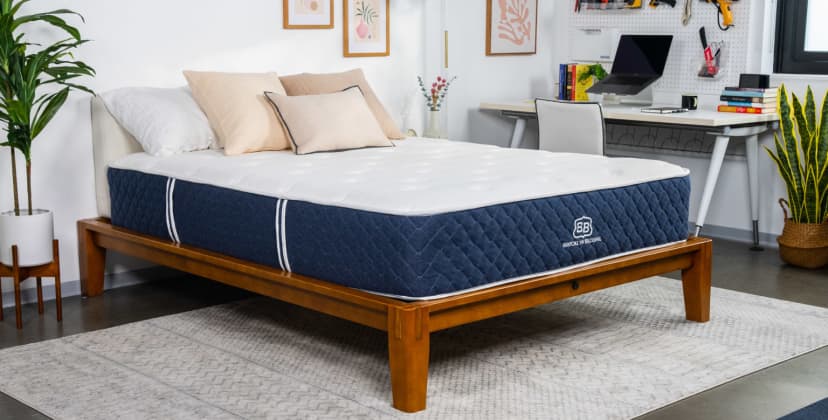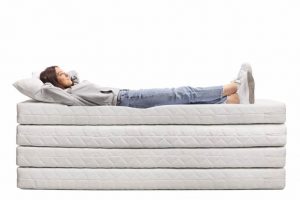A restful night’s sleep is essential for overall health and well-being. However, for individuals suffering from chronic back pain, a good night’s rest can be elusive. The right mattress can play a pivotal role in alleviating back pain and ensuring a more comfortable and restorative sleep. In this article, we’ll explore how to find the ideal mattress to help you sleep soundly while providing relief for your back pain.
The Impact of Mattress on Back Pain
The mattress you sleep on can significantly affect your back pain. An unsuitable mattress may worsen pain, create discomfort, and lead to poor sleep quality. Conversely, a well-suited mattress can alleviate pressure points, promote proper spinal alignment, and improve sleep quality.
1. Support: A mattress should provide optimal support for your body weight and sleeping position. Proper support ensures that your spine maintains its natural curvature, preventing stress on the back muscles.
2. Comfort: Comfort is equally important. A mattress should cushion and support your body to reduce pressure points, especially in areas like the hips, shoulders, and lower back.
3. Durability: The longevity of your mattress is vital. A high-quality mattress should maintain its supportive properties over an extended period.
4. Personal Preferences: Everyone has different comfort preferences. Some may prefer a softer mattress, while others require a firmer one. Your mattress should cater to your unique needs.
Mattress Types for Back Pain Relief
Different mattress types can provide relief for various types of back pain. Here are some options to consider:
1. Memory Foam: Memory foam mattresses conform to your body’s shape, providing excellent support and pressure relief. They are particularly effective for individuals with chronic back pain, as they contour to the body’s natural curves.
2. Latex: Latex mattresses offer resilience and support. Natural latex mattresses, in particular, are hypoallergenic and can provide comfort for those with allergies.
3. Innerspring: Innerspring mattresses with extra cushioning or pillow-top layers can offer support and pressure relief for back pain sufferers. They tend to be more affordable than memory foam or latex options.
4. Hybrid: Hybrid mattresses combine the support of innerspring coils with comfort layers of memory foam or latex. This combination provides a balanced approach to comfort and support.
5. Adjustable Beds: Adjustable beds allow you to customize your sleeping position, providing relief for back pain by elevating your upper body or legs as needed.
Tips for Choosing the Right Mattress
When selecting a mattress for back pain relief, consider the following factors:
1. Firmness: The right firmness level depends on your sleeping position. Back sleepers generally benefit from a medium-firm mattress, while side sleepers may prefer a slightly softer option.
2. Trial Period: Look for a mattress with a trial period or a flexible return policy. This allows you to test the mattress at home and ensure it provides the comfort and relief you need.
3. Research: Read reviews and conduct research on specific brands and models to understand their performance in providing back pain relief.
4. Consult with a Specialist: If you have chronic back pain, it’s advisable to consult with a healthcare professional or orthopedic specialist for personalized mattress recommendations.
5. Budget: Determine your budget, but be prepared to invest in a quality mattress that caters to your back pain needs.
Conclusion
Finding the ideal mattress for back pain relief is crucial for achieving restful and restorative sleep. The right mattress can alleviate discomfort, improve spinal alignment, and enhance your overall well-being. It’s an investment in your health and quality of life, ensuring that you can sleep soundly and wake up feeling refreshed and free from back pain. By considering factors like support, comfort, durability, personal preferences, and mattress type, you can choose the mattress that is perfectly suited to your needs and can provide much-needed relief for your back pain.














Add Comment